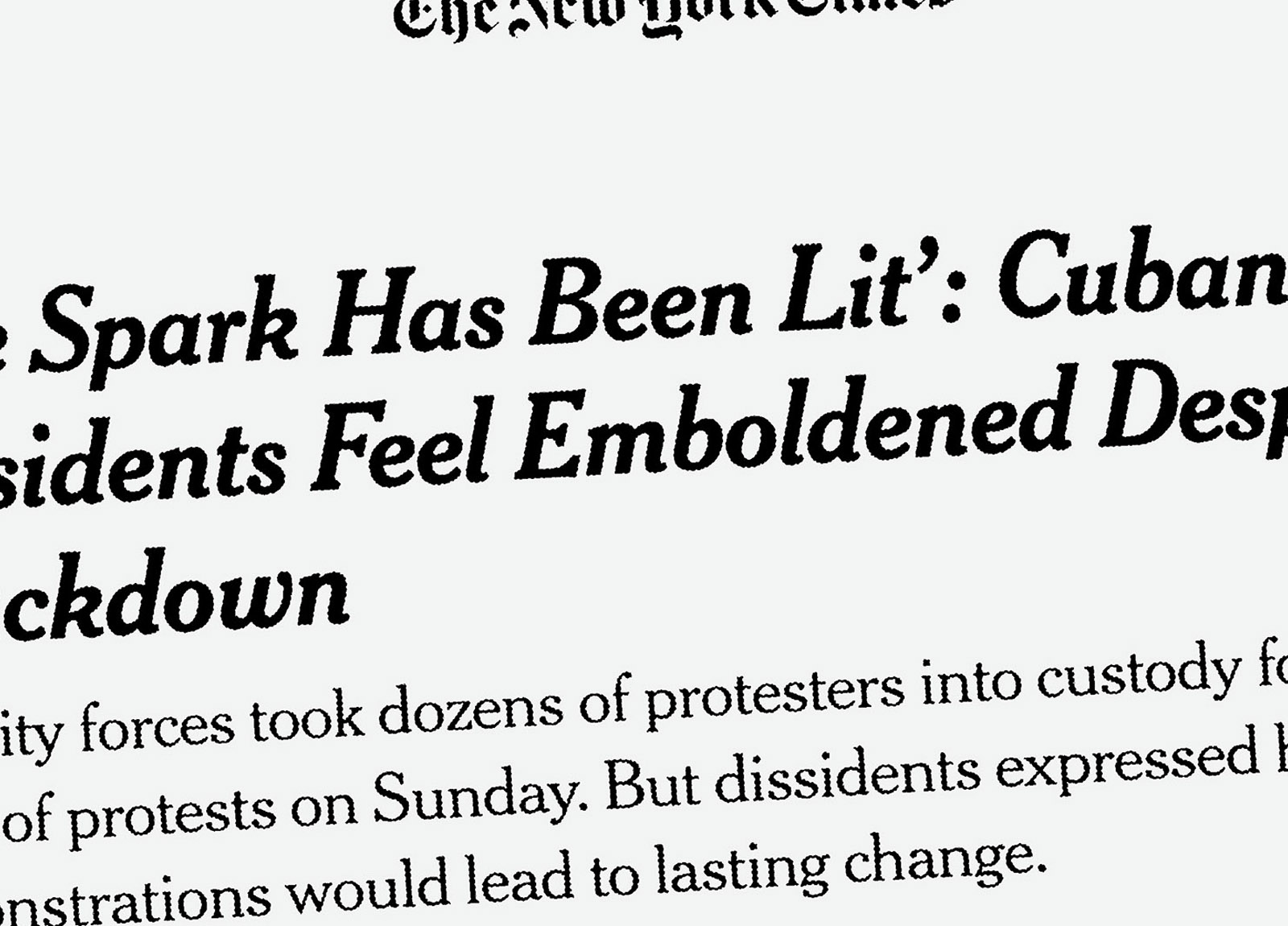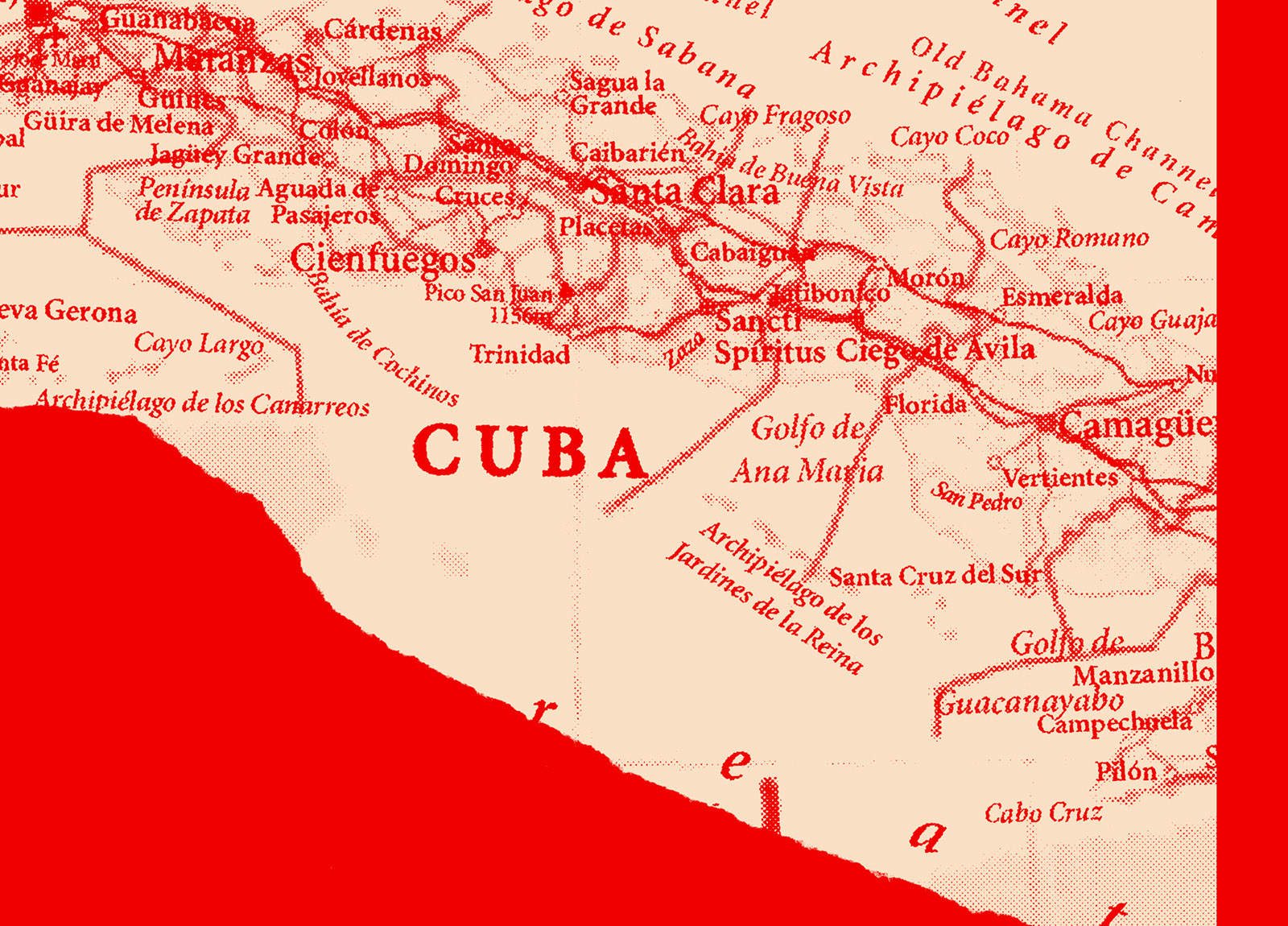In July 2021, Cuban citizens took to the streets to protest their government, largely in response to severe shortages of food and medicine, exacerbated by the COVID-19 pandemic and the then-sixty-year-old U.S. trade embargo.
In its coverage of the protests, The New York Times ignored the U.S. economic and trade embargo against Cuba — despite the stranglehold in which it has placed the island country of nearly 11 million people. Over the years, the embargo has cost Cuba over $1 trillion and is regarded by all nations except the United States and Israel as a violent and punitive Cold War relic.
Every Times article written in the month after the start of the protests attributed Cuba’s hardship primarily to the Cuban government — one July 16 piece described a “Communist government that has left [Cubans] oppressed, sick and hungry” — while ignoring six decades of U.S. policy designed to suffocate the Cuban economy. Another article argued the protests were “spurred by the economic crisis caused by the pandemic, shortages in basic goods and clampdowns on civil liberties,” without mentioning the recently strengthened U.S. sanctions as a source of economic deterioration.
When The Times did name the embargo as a cause of food and medicine shortages, it was not as a fact, but as an accusation made by the Cuban government — a source The Times had already primed readers to distrust by describing it as “authoritarian” “repressive” and “draconian.”
In another article, which directly attributes the protests to hunger, the embargo is not mentioned until the fourteenth paragraph, and again only as an accusation by the Cuban government, which is quickly disputed by a quote from a Cuban American activist. Not once did The Times seriously investigate the claim that the U.S. embargo had triggered Cuba’s economic crisis, despite that claim being widely accepted by the international community.

The Times similarly ignored or dismissed the history of U.S. regime-change efforts in Cuba (according to the State Department’s own internal memos, the long-standing reasoning for the embargo is “to bring about hunger, desperation and overthrow of government”). Predictably, Cuba’s charge that the United States had fomented the protests was framed as the desperate accusation of a flagging dictatorship, not a reasonable response to nearly 65 years of invasion, assassination attempts and economic warfare.
Fittingly, The Times spoke of ongoing U.S. regime-change efforts in a matter-of-fact tone, as in one article that reads, “In Florida, local leaders on Tuesday discussed ways to empower opposition groups in Cuba” (in contrast with how The Times repeatedly chastised China’s interference in Taiwan’s 2018 elections).
A report from the North American Congress on Latin America shows The Times’ coverage of protests in Cuba differed dramatically from that of contemporary anti-government actions in Colombia — a longtime U.S. military partner. While The Times uniformly portrayed Cuban protesters as freedom fighters and the Cuban government as totalitarian, it extended neither this support to Colombian protesters nor this critique to the allied Colombian government’s much more severe repression of protests. Colombia, a U.S. ally, has its own sordid history of wielding its military against its own people and supporting the international drug trade.
Yet it is Cuba which languishes under U.S. sanctions — and the skeptical eye of The New York Times.


